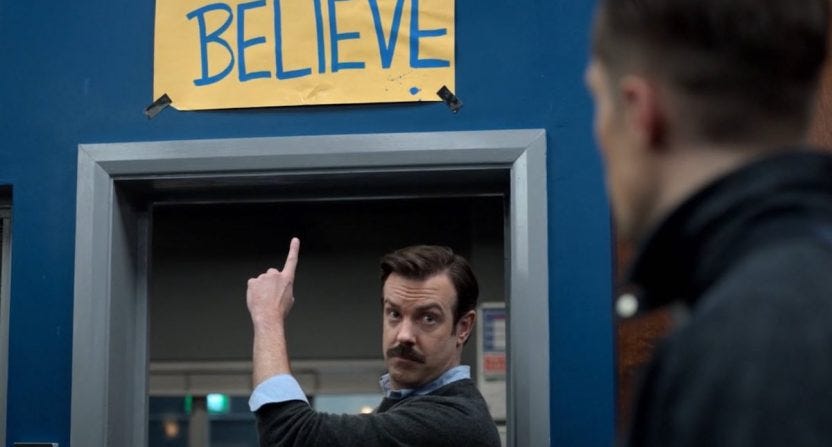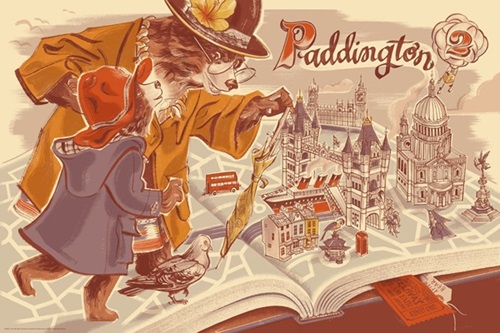
Note: Gather round…. Wait, what should I even call you guys? oh, I got it, you’re my community. My plans for this week’s Passion Post were totally derailed by the fact that the long-awaited movie companion to Community was announced a mirror a few days ago, and will be premiering on Peacock in 2023, and this post is partially the result of that excitement. It also makes a nice companion to the Ted Lasso essay, unintentionally. It seems rather appropriate to be winging it today, as we will be talking about Joel McHale’s Jeff Winger. My senior year of high school, I related to him quite a lot.
Initially, this puzzled me, despite the fact that the cult, (in all of the senses of that word) favorite sitcom Community is my favorite show of all time. (I mean, just listen to that theme song.) I have occasionally related to the wisecracking ex-lawyer before, but this time felt different and more intense. You know what they say, for everything there is a season.
The series follows 7 eccentric students, at the even more eccentric Greendale Community College, who initially come together to form a study group, and end up becoming something more.

Although Community is an ensemble show, Jeff is clearly the main character of season one, because he is perhaps the most dysfunctional of all of the very dysfunctional characters within the series. This makes him a little more complicated than any of the others that we have covered in this series thus far, but important nonetheless. A narcissistic former lawyer who faked his degree and is attending the college because he was caught, Jeff is charismatic, manipulative, and can convince almost anyone to do anything. One of his establishing moments in the pilot is a wonderful example of this, and yes, that is John Oliver as the neurotic Professor Duncan. Under all this bluster and bombast is a deeply emotionally insecure man yearning for love and connection. He softens around the edges due to his fellow study group members and friends.
When my identification with Jeff in season six began, I wondered why Jeff, in particular, and not Abed, a film student who uses references to pop culture to connect with people and to understand the world around him, or driven, high-strung academic Annie? It has to do with how I have learned to handle change.
Jeff returns to Greendale and reluctantly agrees to become a teacher. Known for making stirring speeches he says this in season 6, episode 11: “We self-destruct like this because we’d rather be heroes and villains than just kind of sucky people that need to work a lot at getting less sucky.,” further reinforcing the idea that the characters are all just broken people attempting to help each other make it through. Immediately after becoming a teacher in season 5, episode 1 he says: “Look, if you feel there’s more work to be done on yourselves, then as crappy as this place is, it’s a place that you can do it.” However, in season 6 episode 2, he says this to Greendale’s wacky Dean:” I’m never going to get out of here, am I?” His response: “I haven’t met many that do.” Jeff further progresses in his arc and is at his most relatable to me in season 6, episode 8 titled Intro to Recycled Cinema, when Abed begins to make a movie for Greendale and it doesn’t go Jeff’s way, the root of the problem is revealed as Jeff says this: “Every one of you is going to leave here except for me. So we force you to make the crappiest movie of all time, and then we force you to make it even crappier. We watch it and it’s still not even that bad. The part that I accidentally got the most excited about are the 7 minutes we can cut. Do you know what that means? I finally know in my heart, then I will literally be the last one of us here.”
This was immensely relatable to me, as somebody who’s closest friends are a year older, I felt left behind and isolated my last year of high school, especially due to the pandemic. After rewatching this episode, I finally realized why I related to Jeff so much. I guess you could say this episode about filmmaking gave me a new lens through which to look at my situation.
This arc reaches its conclusion, after Jeff learns that most of his friends are moving on from Greendale, and he is upset and says, ” I don’t want to be fine,” but he realizes he has to let them go. This is one of the most significant things that Community has taught me, to embrace change, and you have to let people go, no matter how upsetting it is.
Greendale’s motto is, “You’re already accepted.” Not only is this a humorous dig at the college’s lack of academic standards, it also underscores the series’s attitudes about people, accepting one another as they are, with all their flaws and virtues. This motto has been a great comfort to me, and it has become one of mine as well.
We will be back to format next week, pending no earth shattering news about my favorite pieces of pop culture! If the news is this good, I’m not going to complain.
Huh, I just realized that if I had a nickel for every time I had an emotional realization about myself from the emotionally stunted and jokey main male character of a lighthearted American sitcom from the last 10 years, and blogged about it here, I’d have two nickels. Which isn’t a lot but it’s weird that it happened twice in a row. Such is life, I guess.




